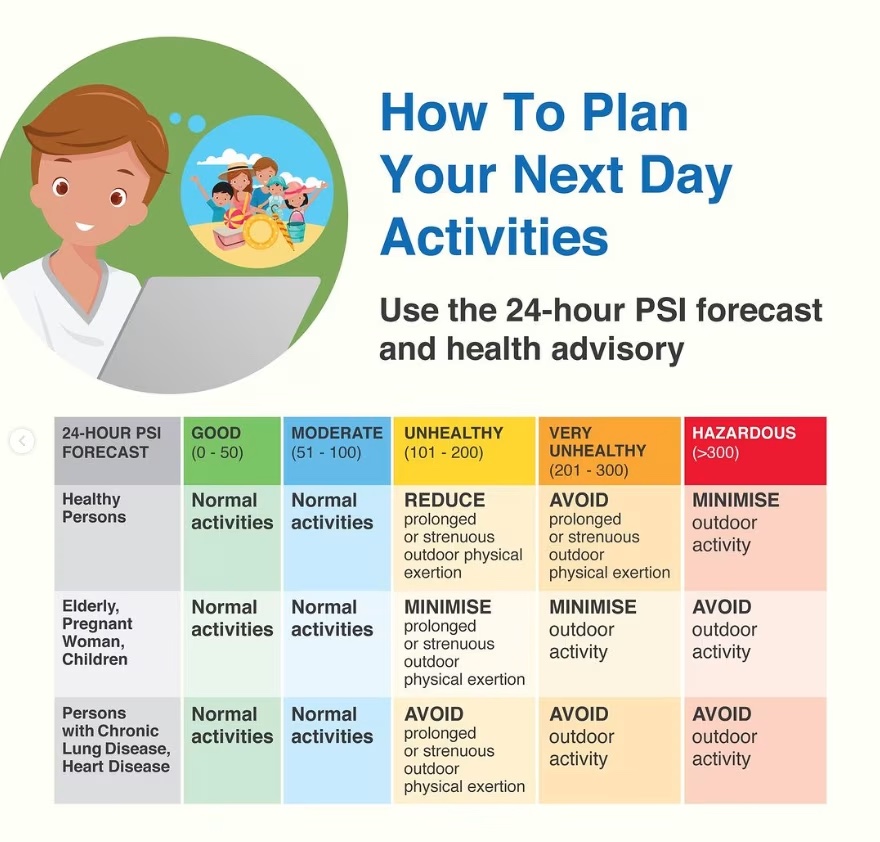An old friend of Singapore’s has recently returned to pay a visit. And no, it’s not just COVID-19, it’s also the haze.
Thanks to the haze paying Singaporeans a much unasked-for visit, Singaporeans are, in turn, paying their doctors a visit.
Surge in Clinic Patients After Haze Makes Comeback in Singapore
According to Lianhe Zaobao, there has been a surge in clinic patients seeking medical attention for allergic rhinitis, coughs, asthma, and other related symptoms.
The reason? The haze has made a comeback in Singapore.
If you didn’t realise that the air quality has been a little subpar recently, we recommend you stop nua-ing in bed all day and look out of your window occasionally…
Singapore’s air quality has fallen back into the unhealthy range for the first time in four years, thanks to the haze blown over from you know where—Indonesia.
As a result, many Singaporeans have started heading to their doctors for various haze-related respiratory symptoms. According to Dr Leong Chun Chieh from Mission Medical Clinic, clinic patients seeking medical attention for haze-related symptoms suddenly surged two to three weeks ago.
To ensure you don’t become one of the many Singaporeans heading to their doctors for respiratory symptoms caused by the haze, here are some precautions you should take.

1. Reduce or Avoid Outdoor Activities
If the problem is the haze, the obvious solution is to avoid or reduce exposure to it.
Doctors have suggested that the public reduce or avoid outdoor activities when it’s a little more hazy outside.
Remember the Pollution Standards Index (PSI)? You can refer to that to determine whether you should reduce or avoid outdoor activities.
The general rule is that if PSI is above 100, you should reduce or avoid outdoor activities, especially strenuous exercise.

2. Air Purifiers and Masks
Doctors have also suggested that the public use air purifiers indoors.
If the PSI exceeds 200, which is the “very unhealthy” range, you should also consider wearing a mask. In particular, N95 masks.
COVID-19 mask mandates might have been lifted, but that doesn’t mean you should stop looking out for your health.
So, if the haze gets worse, wear a mask lah, hor? It’s for your own good.
This is especially so for individuals with chronic heart conditions, chronic lung diseases like asthma or chronic obstructive pulmonary disease (COPD), and other conditions such as eczema and allergic rhinitis—the haze’s impact on such individuals might be more severe.
Individuals with chronic lung diseases using inhalers should also consider stepping up their treatment if the haze sticks around or worsens.
So, TLDR, your health, you take charge lah.
3. Get Your COVID-19 Vaccination
This suggestion might surprise you, but another precaution is to get your COVID-19 vaccination if you’ve yet to do so.
The reason?
According to Dr Theresa Yap, fine particulate matter in the air could potentially carry the coronavirus.
And with the recent COVID-19 wave, you best believe you should get vaccinated if you’re not vaccinated yet.
Better to be safe than sorry.




